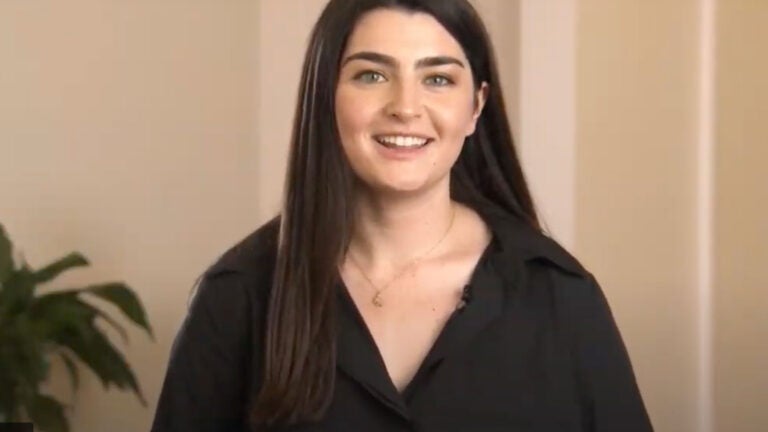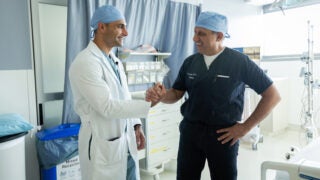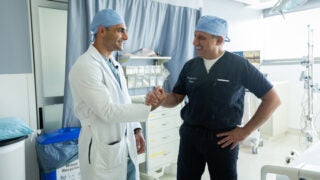
Valedictorian Isabella Hauptmann greets the class of 2020. (Image/USC Class of 2020 celebration livestream)
Valedictorian Isabella Hauptman: ‘The notion of going backwards, to what was, seems a bit misguided’
USC’s 2020 valedictorian addresses the classes of 2020 and 2021 at the university’s commencement ceremonies.
https://youtu.be/J_MlD-7mxNY
Transcript:
Thank you so much for the introduction, President Folt. It’s me again, back by popular demand! 2 valedictory addresses in one year, I think that’s a new USC record.
I feel truly privileged to be here today to speak to the Class of 2020 and 2021 since I am a graduate of both. I will admit, however, it is quite sobering. When I gave my first address to the Class of 2020, it had only been two months since the World Health Organization characterized COVID-19 as a pandemic. Here we are now, a year later. And, as I’m sure most of you can relate, this year has felt more like a lifetime.
I know that because I am now graduating with my masters in biostatistics and epidemiology, you might expect me to talk about COVID-19. You think I’ll lecture you about wearing a mask when appropriate (which you should). Or ask that you respect social distancing guidelines (which you should). Or convince you to get vaccinated (which, if you are eligible and able, you should). Rest assured, I won’t be giving that speech today. I also won’t be crowdsourcing for a job, but I’m putting it out there, I am looking! Instead, I plan to discuss something that has been sitting on my mind.
Since last March, the majority of our conversations (personal, professional, political) have been dominated by the concept of a return to normalcy. We’ve asked incessantly when things can go back to the way they were. I mean, don’t get me wrong, I’m all for hugging, seeing grandparents, eating indoors, and sharing lip balm again. Well, maybe not the last one. But fundamentally, I have a problem with this language. The notion of going backwards, to what was, seems a bit misguided.
Collectively, we are experiencing trauma that cuts long and cuts deep. Trauma that has gnawed away at our empathy, our compassion, our justice. Trauma that is exposing even more underlying conditions that plague this country and have since its inception. And if you’ve been paying attention, you too have come to the conclusion that these issues (yes – I’m talking about racism and social injustice, among others) don’t go away by ignoring them or simply moving on without acknowledge our role in them. After all that we have witnessed, it’s unreasonable to assume we can, or should, just return to normal.
In my humble opinion, we should be less focused on returning, and more focused on arriving. On creating. On progressing. On healing. Last year, I asked us to identify our values and reconcile them with our responsibilities to each other. And now as we graduate, we are uniquely positioned to create a future that can more appropriately and accurately embody these values. A future that is more sustainable, more equitable, more just, more empathetic. A future centered around collaboration and innovation. A future that we can be proud of. And the exciting thing is that each of us get to be the architects of this future. This I know we are capable of because we are Trojans after all: faithful, scholarly, skillful, courageous and ambitious. These are the qualities that will enable us to do better and to be better. For ourselves and for each other.



